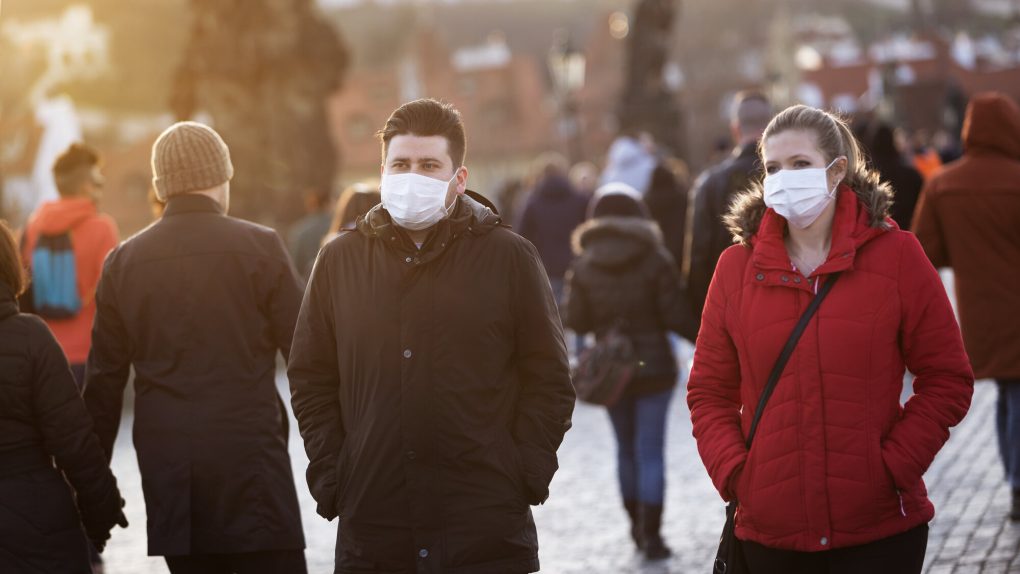- Dr. Anthony Fauci explained during a Q&A session on Twitter why it’s so important for coronavirus vaccinated people to keep wearing masks.
- Fauci reminds people there’s not enough data to prove COVID-19 vaccines can prevent a person from being infected. Once infection occurs, that person could infect others even if the vaccine protects against severe COVID-19 complications and death.
- Recent studies have shown that COVID-19 survivors can experience reinfections, and they could infect others in turn.
The novel coronavirus vaccination campaign might be bumpy, but that’s par for the course. This is the world’s first pandemic that could be resolved with a swift immunization process. The scarcity of vaccine supply means not everyone who wants a shot can get it for the time being. And most vaccines come with a two-dose regimen, which further impacts supply. But vaccines alone will not put an end to the pandemic. Precautions are still required after immunization, and Dr. Anthony Fauci explained again why wearing face masks after being vaccinated is so important.
Manning the White House coronavirus COVID-19 Response Team Twitter account, Fauci said that there’s still not enough data to prove that vaccines can prevent the spread of COVID-19.
“Currently, we do not have enough data to be able to say with confidence that the vaccines can prevent transmission,” the health expert explained. “So even if vaccinated, you may still be able to spread the virus to vulnerable people. Masks are vital until we learn more & significantly reduce infections.”
Currently, we do not have enough data to be able to say with confidence that the vaccines can prevent transmission. So even if vaccinated, you may still be able to spread the virus to vulnerable people. Masks are vital until we learn more & significantly reduce infections. -AF https://t.co/on7h6S6bP2
— White House COVID-19 Response Team (@WHCOVIDResponse) February 4, 2021
Fauci said even before the first COVID-19 vaccines cleared Phase 3 trials that the purpose of these first-generation vaccines isn’t to prevent transmission. Instead, the goal is to prevent severe illness and death. That implied vaccinated people could still get infected and spread the disease to others even though they might not develop severe cases of COVID-19 themselves.
Recent research from the UK showed that so many COVID-19 survivors can get reinfected and spread the illness to others without knowing it. Their immune systems would be ready to fight the virus from the moment that reinfection occurs. But the virus might still multiply in the nose, and that could be enough to spread the virus and infect people nearby. More recently, a study from Mount Sinai proved that reinfection might be more frequent than believed. But reinfection is also likely to be asymptomatic or at least mild; that’s why people might not even know they’ve been reinfected. The same thing could happen with people who have been vaccinated.
Follow-up data are being collected from vaccine trial volunteers now. If there are significantly fewer asymptomatic infections & a lower level of virus in the noses of vaccine recipients, it would suggest a decreased ability to transmit the virus following vaccination. -AF https://t.co/0SMX1MO4Cr
— White House COVID-19 Response Team (@WHCOVIDResponse) February 4, 2021
“Follow-up data are being collected from vaccine trial volunteers now. If there are significantly fewer asymptomatic infections and a lower level of virus in the noses of vaccine recipients, it would suggest a decreased ability to transmit the virus following vaccination,” Fauci said in a different tweet. He responded to a question asking how soon we’ll know whether the Pfizer/BioNTech and Moderna drugs can prevent transmission.
A preliminary study from Oxford from earlier this week showed that the AstraZeneca/Oxford vaccine can prevent coronavirus transmission. Moderna officials speculated in previous interviews that their vaccine candidate can reduce the spread of the virus in addition to preventing severe COVID-19 and death, but they do not yet have the scientific data to prove it. Separately, a study said the Pfizer/BioNTech vaccine might also block the spread.
One other reason to wear face masks before and after getting vaccinated concerns the way coronavirus immunity develops. It takes time for the body to create neutralizing antibodies that can beat the real virus. Immunity isn’t acquired immediately after the first jab. It takes about two weeks for a vaccinated person to develop protection. During that time, a COVID-19 infection is still possible. There were even cases where immunized people contracted the illness before the first shot and developed COVID-19 in between the two doses. Similarly, full protection is believed to be reached about a week after the second dose. During all this time — and even after that — people are advised to still respect the same measures that can minimize the risk of transmission, including face masks, social distancing, frequent hand hygiene, ventilation of indoor spaces, and avoiding crowded places.








